Beiträge
-
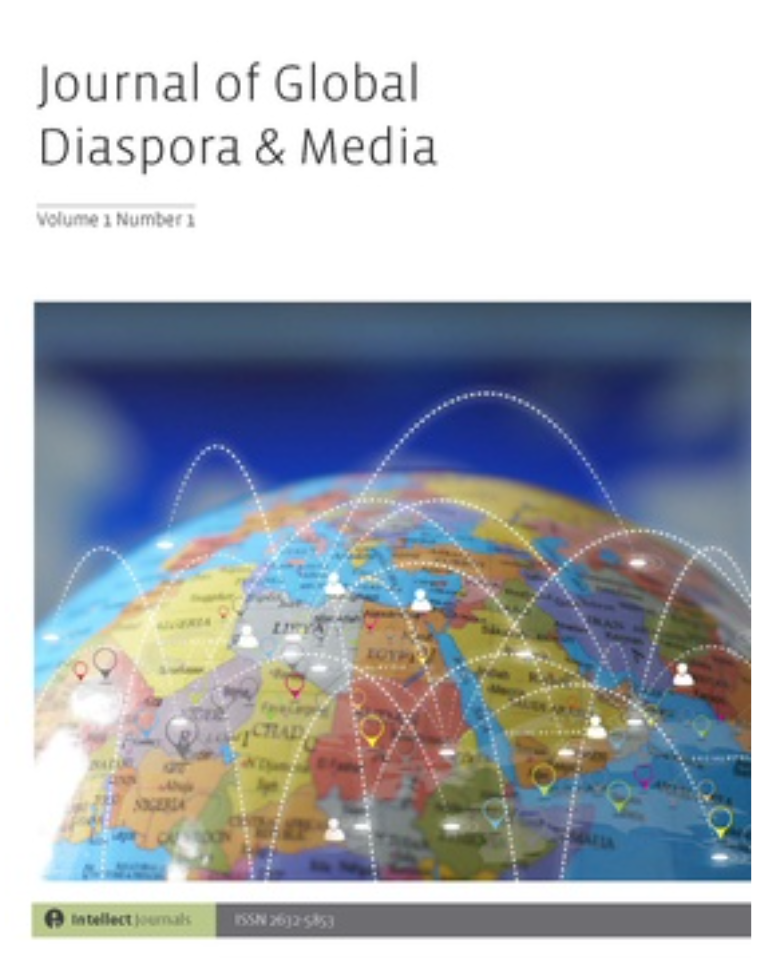 How to Shape Black Diasporic Identity in France by Reading (About) Literature
How to Shape Black Diasporic Identity in France by Reading (About) LiteratureThis article gives an overview of francophone African diasporic websites such as Africultures.com, africavivre.com and other digital magazines, networks and blogs that are present on different platforms. Taking recent novels, texts of liter- ary criticism, reviews and comments as examples, I analyse in what way they share in discourse about diasporic and migratory identity positions of Afropéens (‘Afropeans’) (and differ therein from other readings of the same novels). Methodologically, I draw on Stephen Greenblatt’s concepts of self-fashioning and circulation of social energy as well as on Pierre Bourdieu’s notion of the produc- tion of social capital. With respect to socially preformed discursive formation of Black people as an ostensibly homogeneous minority in the twenty-first century France, I refer to Pap Ndiaye’s ground-breaking study La condition noire from 2009 which closely analyses the complex situation of the Black migrant and post- migrant population. I focus on two narrative texts which are widely perceived both in France and on an international level: First, the autobiographically inspired novel Le Ventre de l’Atlantique (The Belly of the Atlantic) by Fatou Diome and second, Marie Ndiaye’s narrative triptych Trois femmes puissantes (Three Strong Women). Studying remarks and comments of literary criticism concern- ing these texts on francophone African diasporic websites, I raise the following questions: What relevance do these narrated characters (still) have today? To what extent do they shape the discourse of Black migrants in France? What kind of interpretation of the colonial history and context do they offer? And which emancipatory moments and decolonial strategies create a new, proper symbolic capital and, thus, add to the Imagined Community of ‘Noirs en France’ (‘Black people in France’)?
-
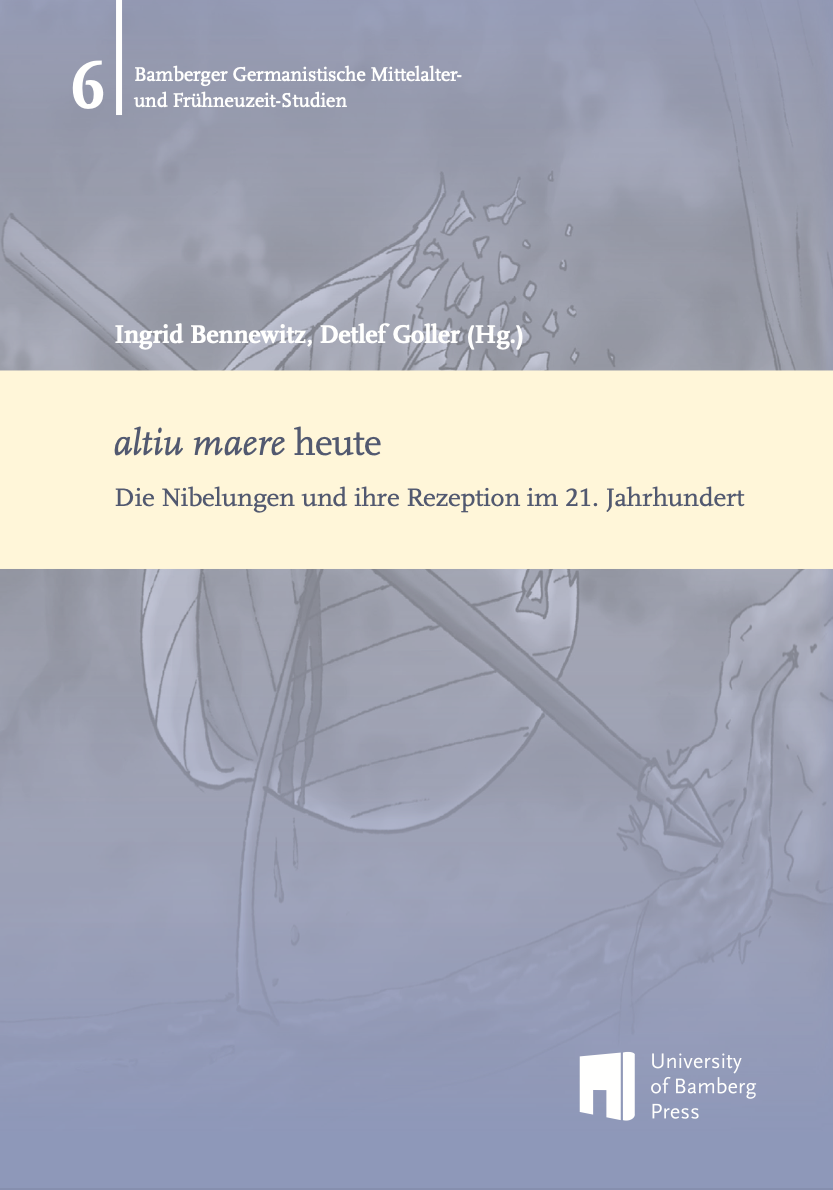 Kriemhild im 21. Jahrhundert. Variationen über eine widersprüchliche Figur
Kriemhild im 21. Jahrhundert. Variationen über eine widersprüchliche Figur
-
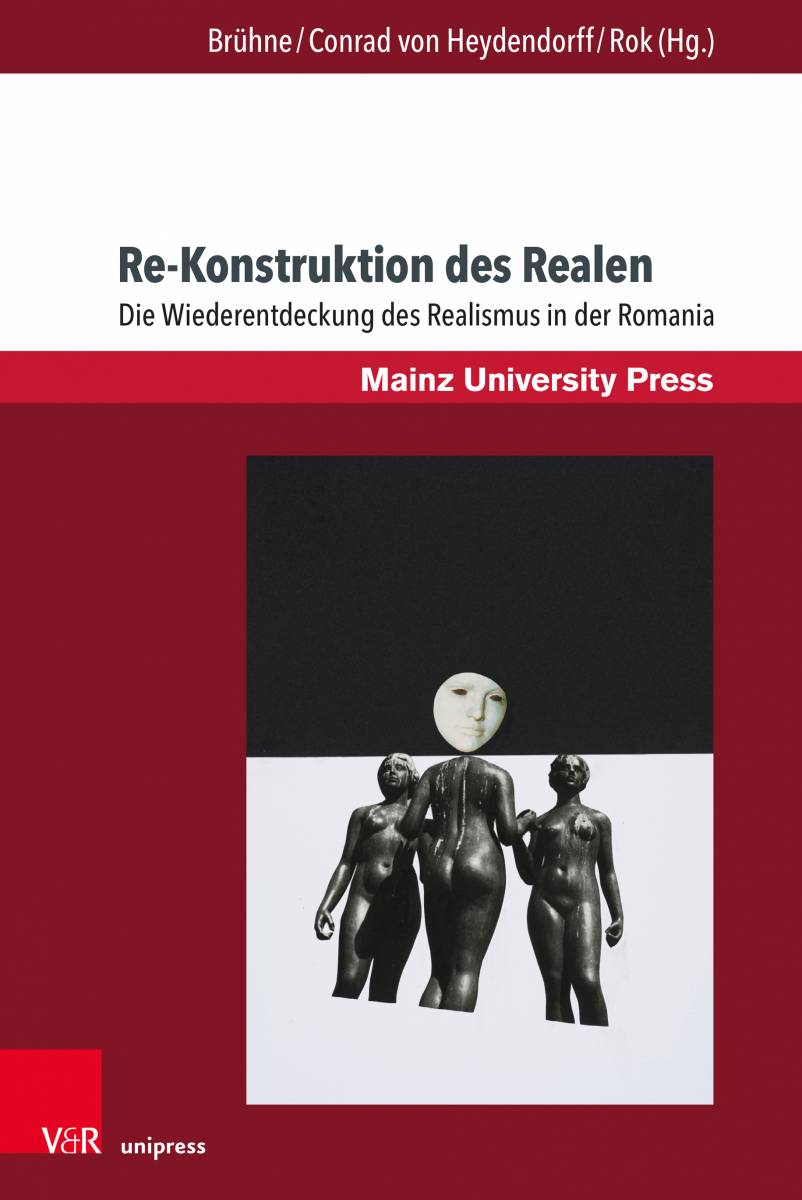 Realismus, Groteske, Ethik des Überlebens in der aktuellen haitianischen gesellschaftskritischen Literatur am Beispiel von Kettly Pierre Mars
Realismus, Groteske, Ethik des Überlebens in der aktuellen haitianischen gesellschaftskritischen Literatur am Beispiel von Kettly Pierre Mars
-
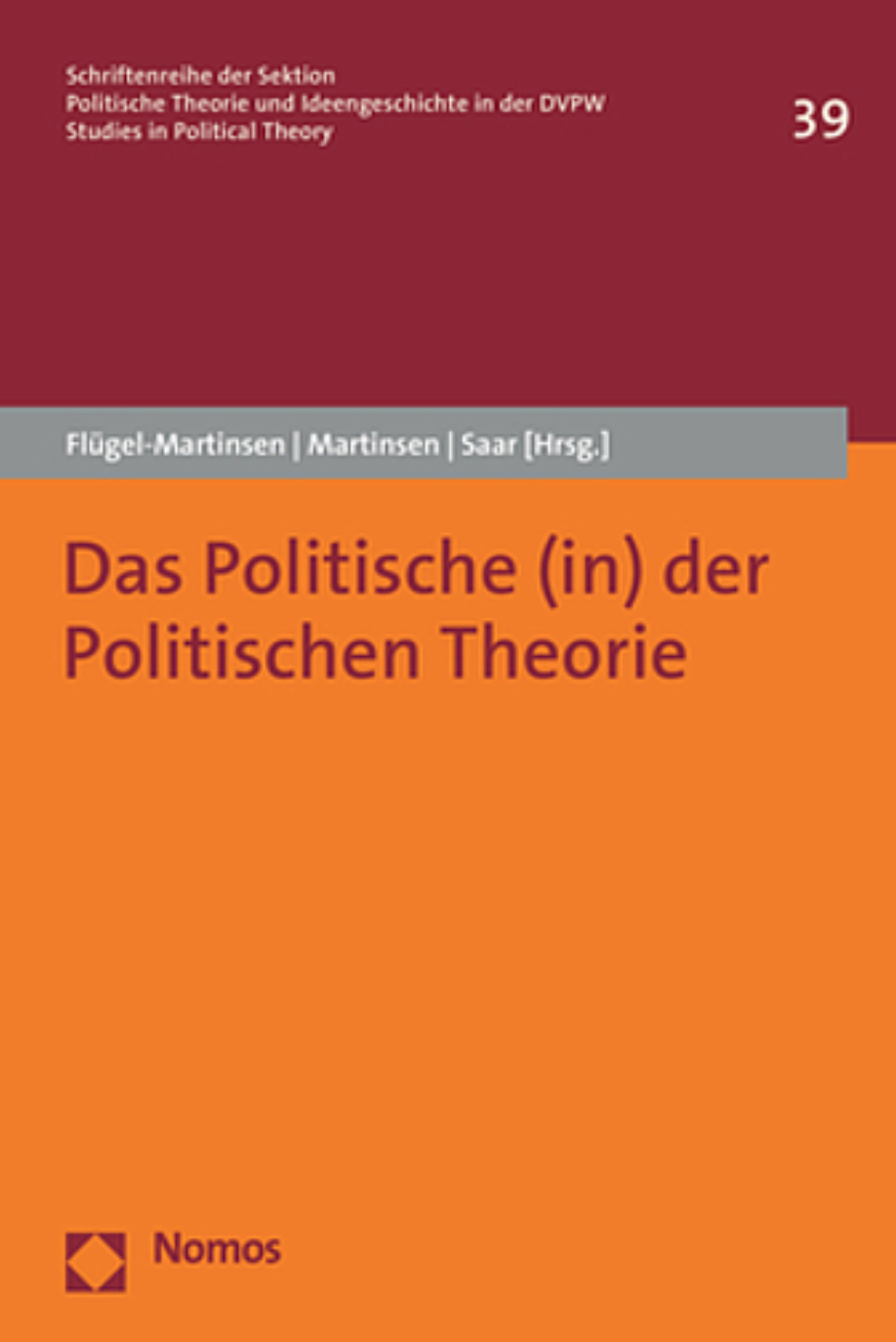 Das Politische und die Option auf Herrschaftskritik, oder: Populismus
Das Politische und die Option auf Herrschaftskritik, oder: Populismus
-
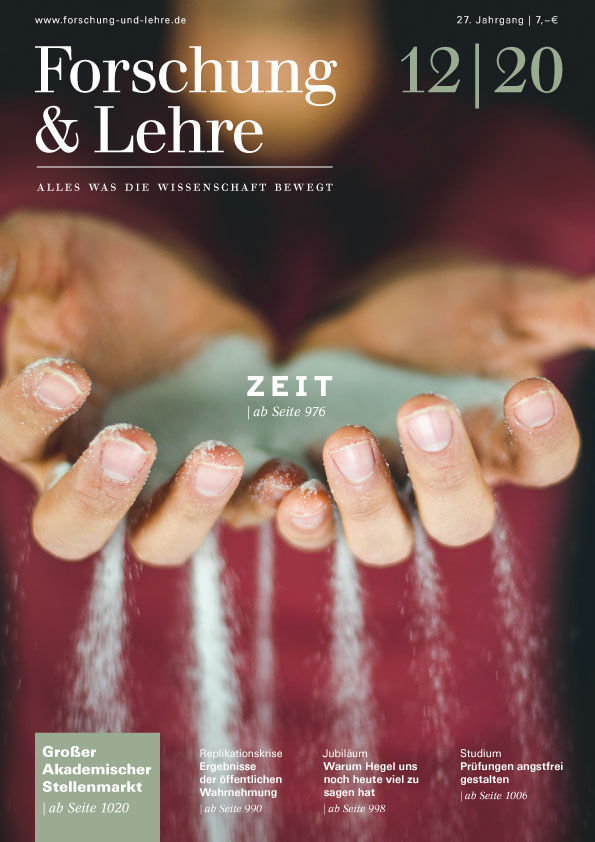 Die Zeit in ihrer Vielfalt denken. Anmerkungen aus philosophischer Perspektive
Die Zeit in ihrer Vielfalt denken. Anmerkungen aus philosophischer PerspektiveDas Phänomen der Zeit gehört zu den großen Geheimnissen der Existenz, des Denkens und der Wissenschaften. Ein Versuch, sich der Vielfalt der verschiedenen Arten von Zeit, Zeitskalen und Zeitordnungen zu nähern.
-
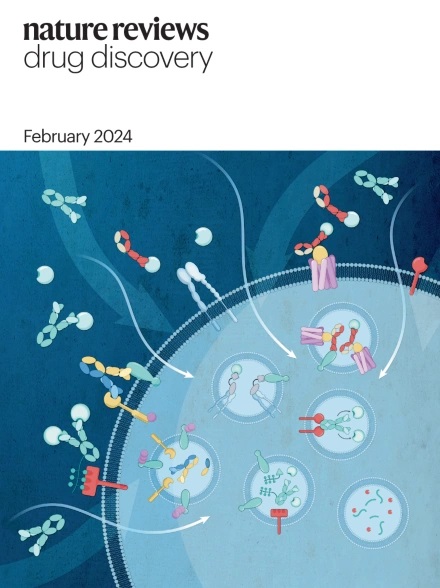 Rethinking Drug Design in the Artificial Intelligence Era
Rethinking Drug Design in the Artificial Intelligence EraArtificial intelligence (AI) tools are increasingly being applied in drug discovery. While some protagonists point to vast opportunities potentially offered by such tools, others remain sceptical, waiting for a clear impact to be shown in drug discovery projects. The reality is probably somewhere in-between these extremes, yet it is clear that AI is providing new challenges not only for the scientists involved but also for the biopharma industry and its established processes for discovering and developing new medicines. This article presents the views of a diverse group of international experts on the ‘grand challenges’ in small-molecule drug discovery with AI and the approaches to address them.
-
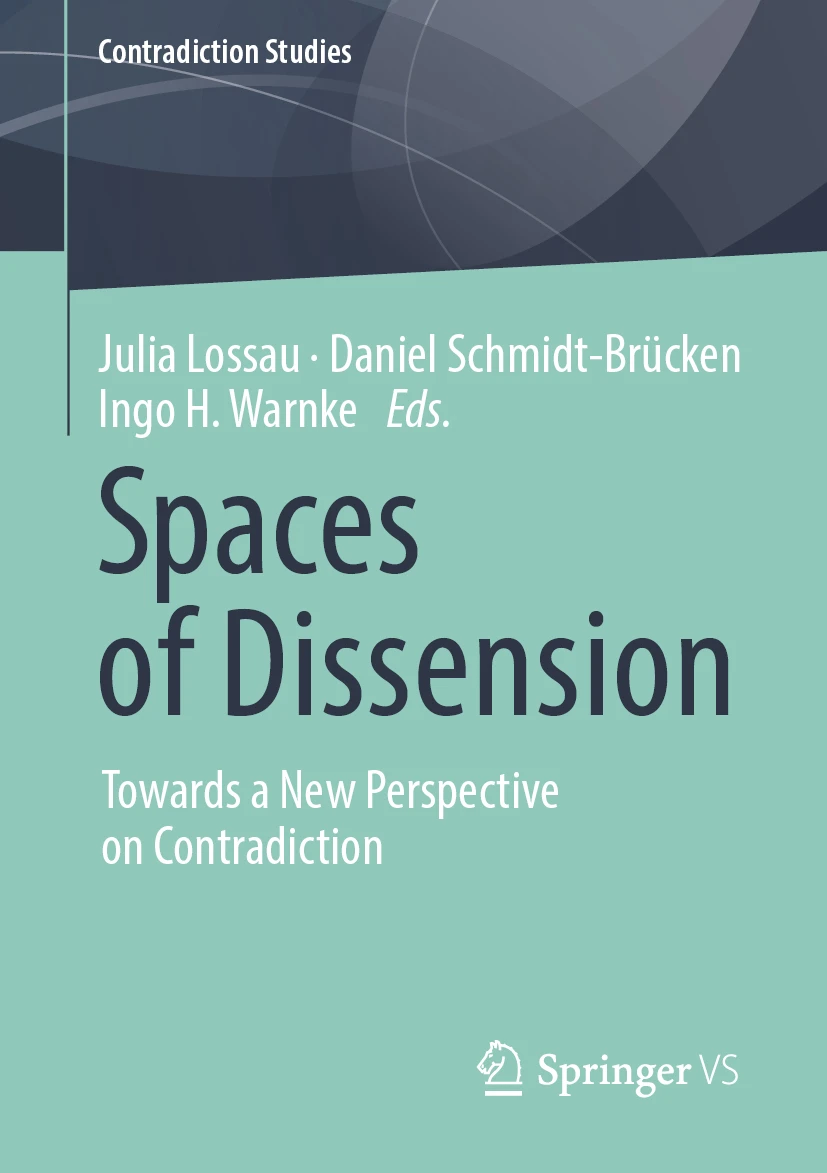 (In)Visible and (Un)Homely. Underground Infrastructures as Spaces of Dissension
(In)Visible and (Un)Homely. Underground Infrastructures as Spaces of DissensionCarving out the paradoxes of underground urban infrastructure, this paper attempts to establish a dialog between infrastructure studies, on the one hand, and Contradiction Studies, on the other hand. It starts from the premise that the technical and political characteristics of infrastructure are only thought of and made visible in case of failure or breakdown.
-
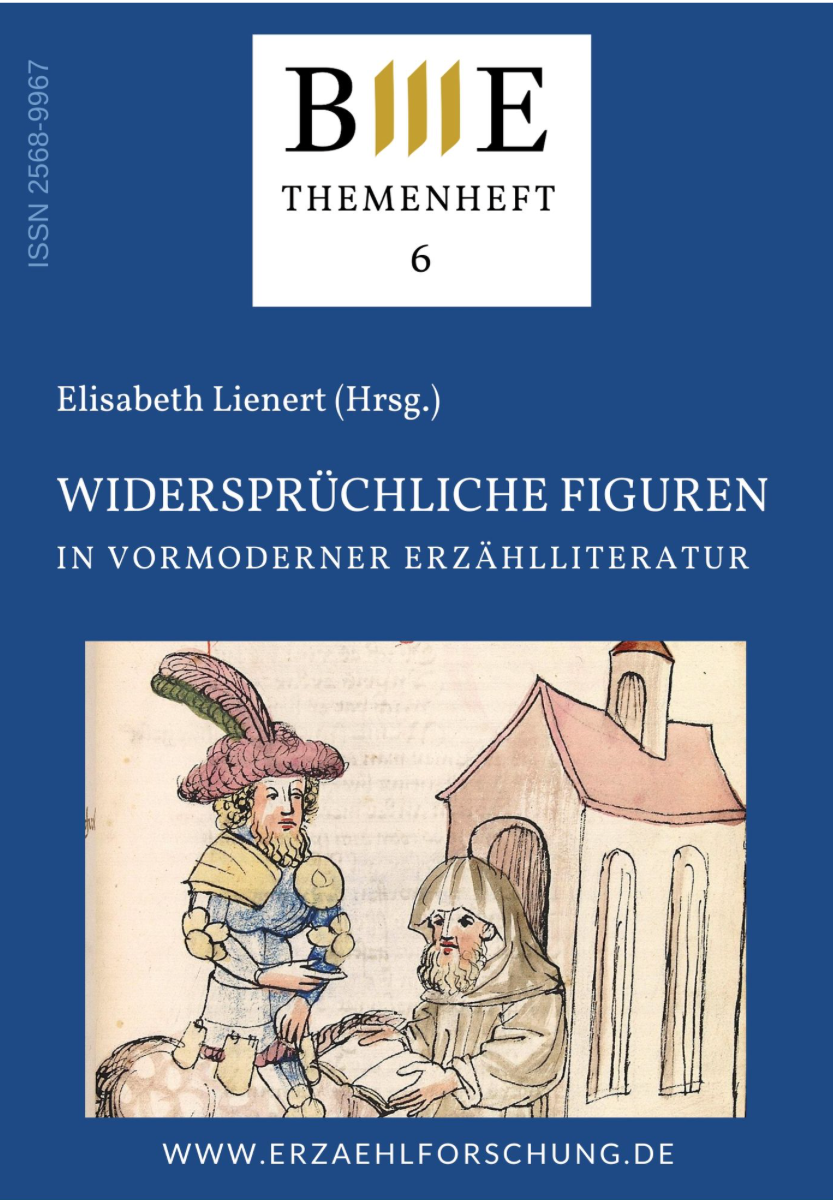 Einleitung. Was ist eine widersprüchliche Figur?
Einleitung. Was ist eine widersprüchliche Figur?
-
 Herrschaft und Macht im Widerspruch. Problematische Könige im ›Nibelungenlied‹
Herrschaft und Macht im Widerspruch. Problematische Könige im ›Nibelungenlied‹Am Beispiel Gunthers, Siegfrieds, Dietrichs von Bern und Etzels im ›Nibelungenlied‹ untersucht der Vortrag Widersprüche zwischen Königsrang und tatsächlicher Handlungsmacht, zwischen Herrscherhandeln und Herrschaftsdiskurs. Sie verweisen auf die gattungstypische Selbstdarstellung des Kriegeradels in der Heldenepik und auf den Primat von Stoffgeschichte und Finalität der Handlung gegenüber der insofern nur ›nachgeordnet‹ widersprüchlichen Figurenkonstitution, aber auch auf Verschiebungen im Herrschaftsdiskurs.
-
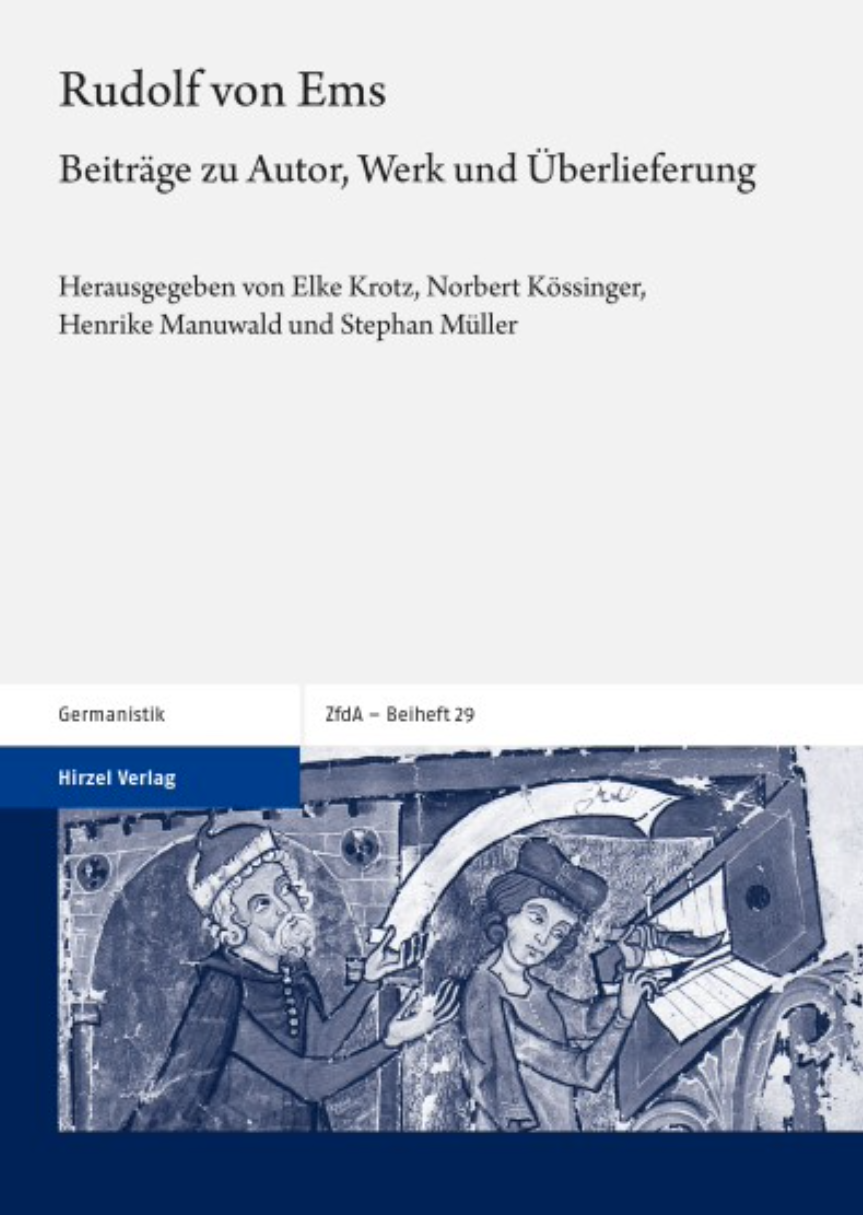 Idealisierung und Widerspruch. Zur Figurenkonstitution von Rudolfs von Ems Alexander.
Idealisierung und Widerspruch. Zur Figurenkonstitution von Rudolfs von Ems Alexander.
-
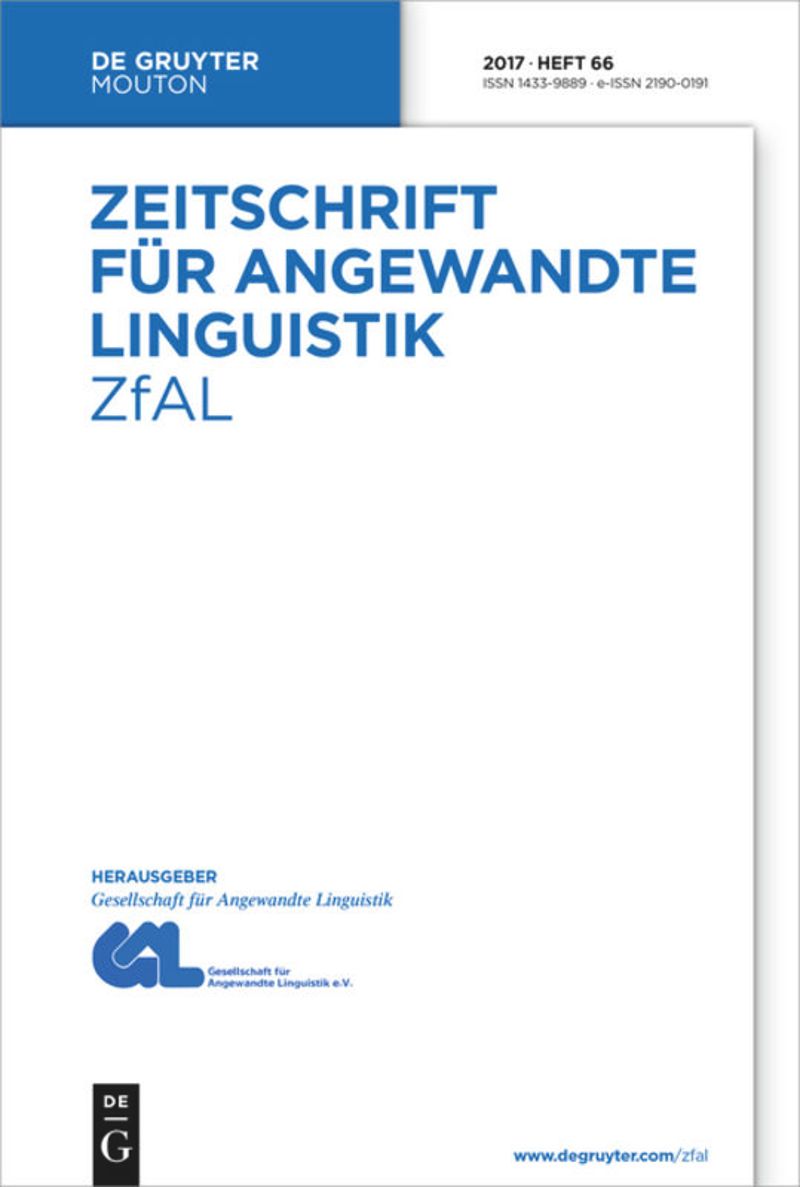 Marginalisierung in der Marginalität? Ein Blick auf digitale Räume anhand sprachlicher Konstruktion von randständigen Positionen im Kontext von Asexualität
Marginalisierung in der Marginalität? Ein Blick auf digitale Räume anhand sprachlicher Konstruktion von randständigen Positionen im Kontext von Asexualität„Our mascot should be a unicorn considering how many people don’t believe asexuality is a thing.“[1]
This article discusses marginalisation in internet forums and blogging platforms using the example of asexuality blogs and discussion threads. While large corpora of both English and German, such as COCA and DeReKo, contain hardly any mention of asexuality and these few instances of asexuality and related expressions typically refer to plant biology, online communities do discuss aspects of life as an asexual person and their experiences of marginalization even within the LGBTQ community. Definitions of asexuality, including its delineation from other identities, and how asexual people articulate conflicts and other issues on these online platforms are discussed in detail. Particular attention is paid to how this particular group is constructed by others, how they construct themselves as not being part of the mainstream, and the role (self-)marginalisation plays in this context.
-
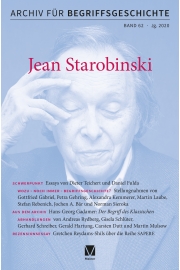 Begriffsgeschichte und Einzelwissenschaften
Begriffsgeschichte und Einzelwissenschaften
-
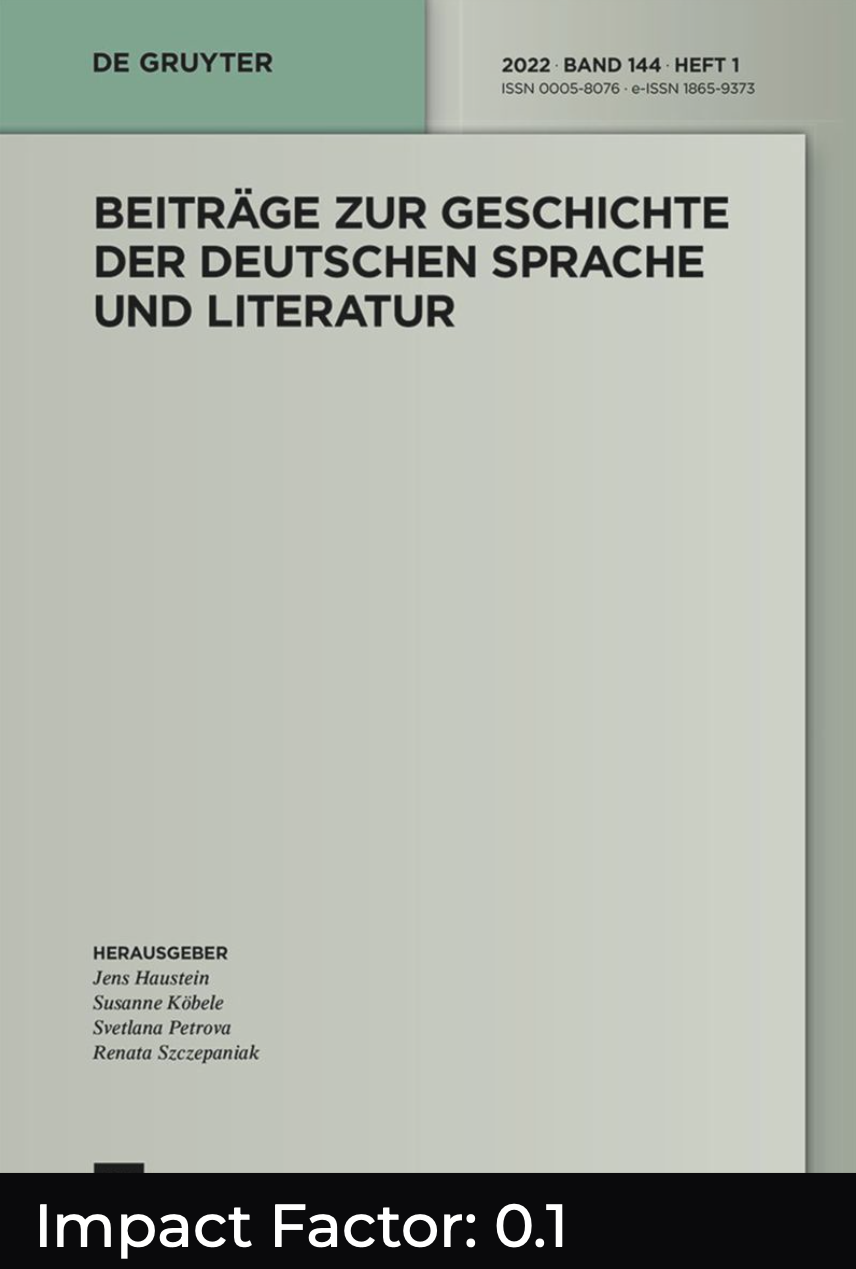 Widersprüche in heldenepischem Erzählen
Widersprüche in heldenepischem ErzählenThis article (re-)examines (marked) inconsistencies and incompatibilities in Middle High German heroic epic. Those contradictions may result from oral tradition, from the difficulties of transfering oral narratives into literacy, from the conditions of performing from memory, or from traditional narrative regularities of the genre. Frequently, they are striking side effects of a type of narration which is paradigmatic instead of syntagmatic, elliptic and aggregative, scenic and final, and therefore highly tolerant against contradictions of any kind. Contradictions and inconsistencies are (consciously or unconsciously) used (and imitated) as one of the constitutive stylistic features of heroic epic. In some cases, moreover, contradictions and inconsistencies are obviously part of an intentional poetics of contradiction ostentatiously accumulating and exhibiting different layers of knowledge and meaning. The textual strategies of heroic epic, in some respect perhaps of premodern narration in general, tend to favour discrepancies, contrasts, and contradiction instead of nuances, compromises, and smooth transitions.
-
 Knowledges and Contradictions in Premodern Narratives
Knowledges and Contradictions in Premodern NarrativesContradiction is not just a (post-)modern phenomenon. In premodern narratives, conflicting concepts and logical inconsistencies are omnipresent. This paper focuses on contradictions interdependent with knowledge: Traditional narratives may aggregate different versions of matters rooted in collective memory (heroic epic) or authoritative sources (romances of antiquity), sometimes without concern for the consistency of their own story. Narrative texts may use contradiction for didactic purposes. Contradictions may result in both construction and deconstruction of knowledge. Strategies of irritation and ambiguity involve recipients in the production of meaning. Thus, the concept of contradiction is apt to redefine premodern narrative strategies.
-
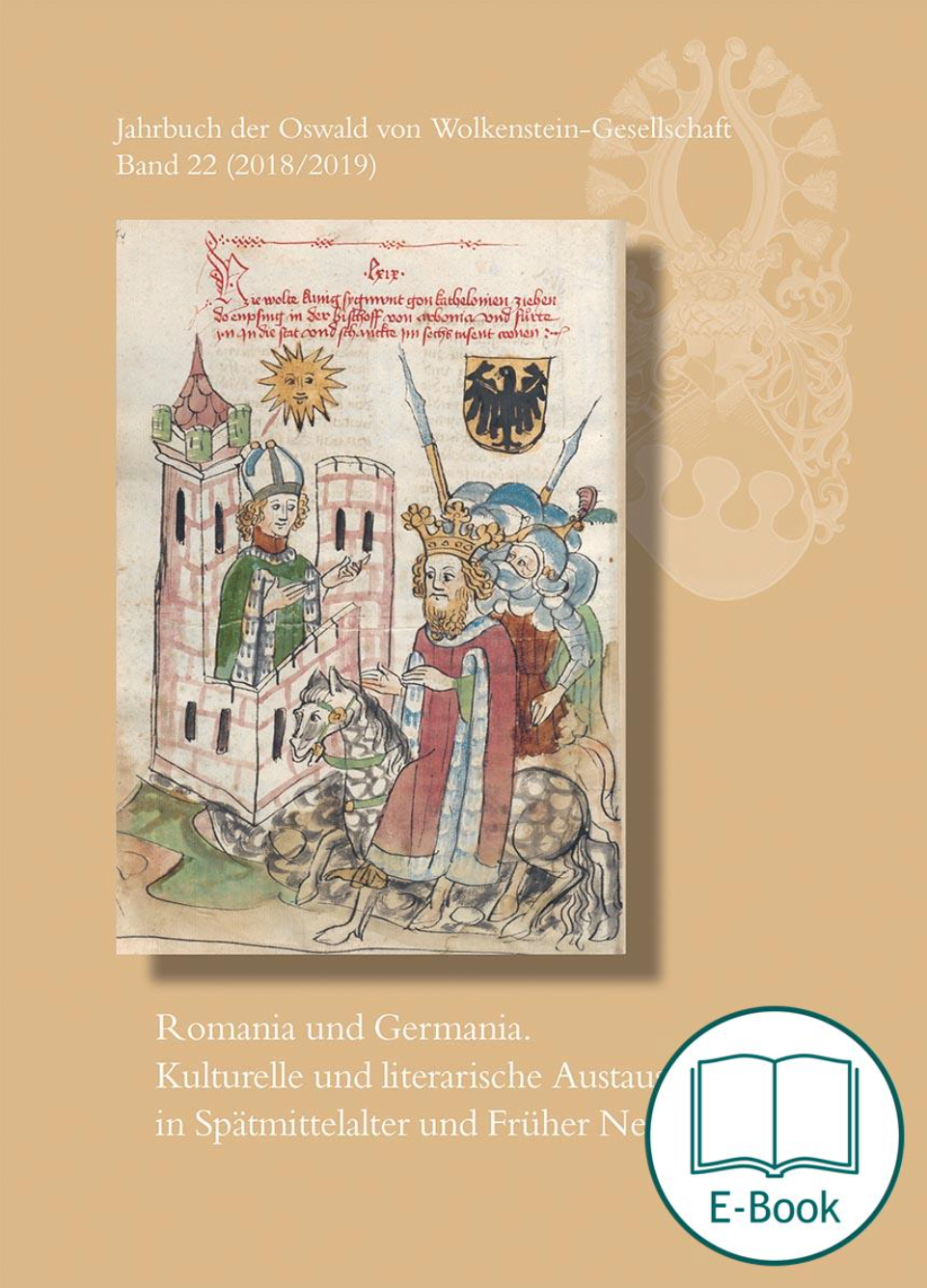 Erzähllogiken transnational. Narratologische Aspekte der Rezeption französischer Heldenepik in frühneuhochdeutscher ProsaErzähllogiken transnational
Erzähllogiken transnational. Narratologische Aspekte der Rezeption französischer Heldenepik in frühneuhochdeutscher ProsaErzähllogiken transnational
-
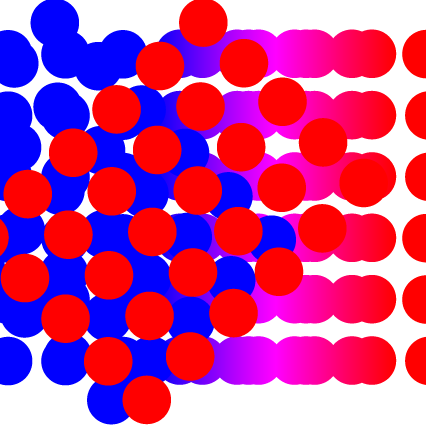 „Wildekeit“ und Widerspruch. Poetik der Diskrepanz bei Konrad von Würzburg
„Wildekeit“ und Widerspruch. Poetik der Diskrepanz bei Konrad von Würzburg
-
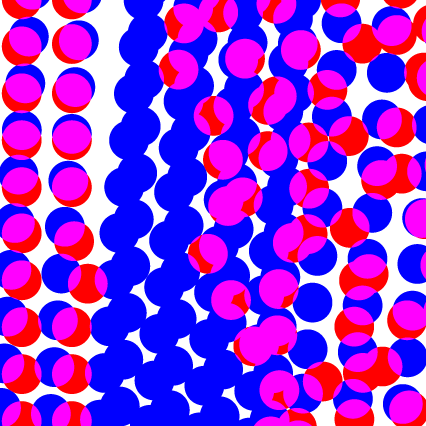 Antagonisten im höfischen Roman? Eine Skizze
Antagonisten im höfischen Roman? Eine SkizzeDer Beitrag skizziert Darstellung und vielfältige Funktionen ausgewählter Gegenfiguren im höfischen Roman um 1200. Vom Antikenroman abgesehen begegnen nur selten Gegenspieler auf Augenhöhe, die ein entgegengesetztes Wertsystem repräsentieren und konsequent bis zum Ende gegen den Helden agieren. Die Texte sind protagonistenzentriert; ein gleichwertiges narratives Gegenüber wird kaum entworfen. Insofern wäre der Begriff ‘Antagonist’ für Artus-, Gral- und Tristanroman zu hinterfragen.
-
 Widerspruch als Erzählprinzip in der Vormoderne? Eine Projektskizze
Widerspruch als Erzählprinzip in der Vormoderne? Eine ProjektskizzeIn premodern narratives contradictions are omnipresent – conflicting concepts, logical inconsistencies, acts of objection. In a narratological perspective ›contradiction‹ – conflicts of incompatible knowledges and narrative patterns; inconsistencies in or between speech (by narrator or characters) and action; contradictory or inconsistent information and motivation – is apt to subvert, complicate, or enrich the textual production of meaning. The project ›Contradiction as a Narrative Principle in Premodern Narrative‹ (University of Bremen) explores different types of contradictions in medieval epic and romance.
-
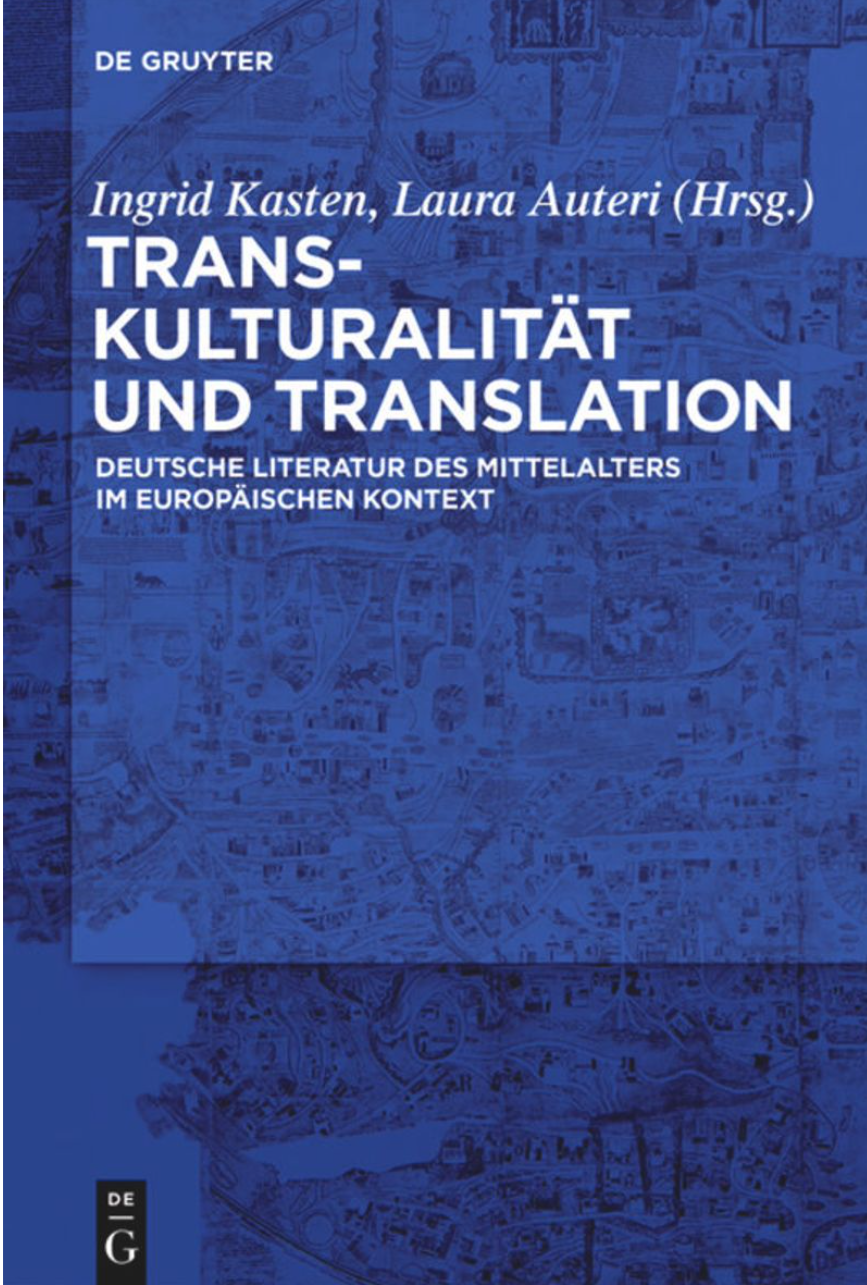 Erzählen in transkultureller Perspektive. Zur Poetologie der Widersprüche in der europäischen Heldendichtung
Erzählen in transkultureller Perspektive. Zur Poetologie der Widersprüche in der europäischen Heldendichtung
-
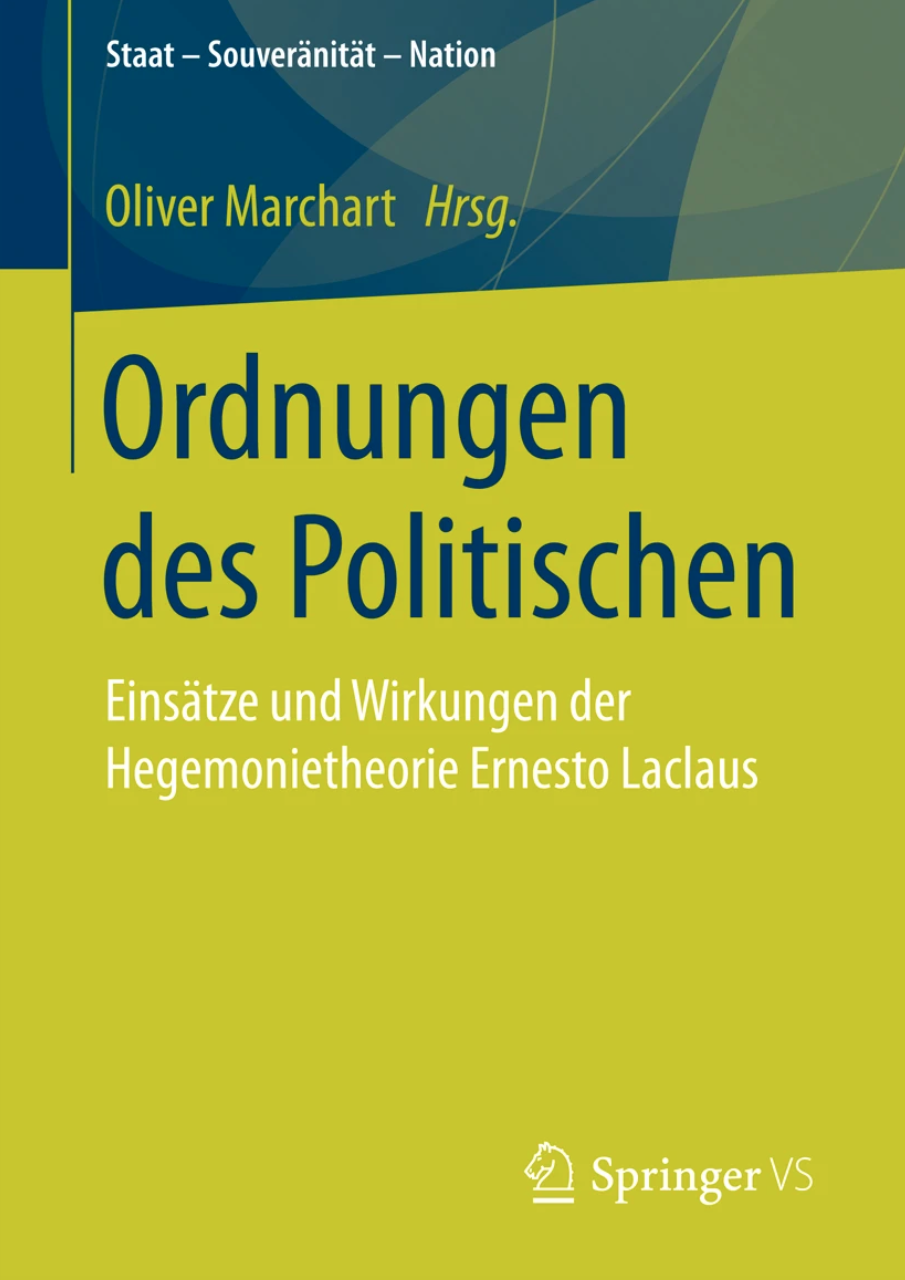 Antagonismus und Antagonismen – hegemonietheoretische Aufklärung
Antagonismus und Antagonismen – hegemonietheoretische Aufklärung